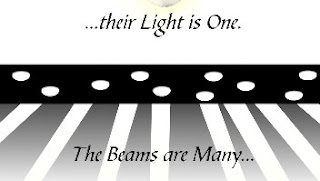Pages
▼
Friday, May 02, 2008
"And He Is One, And There Is No Other"
והוא אחד ואין שני
How many times have I said these words from Adom Olam without giving them any consideration. Perhaps I fly past them because I consider it is a given that there is only one Hashem and I don't feel the need to dwell on an idea that it so elementary. A recent conversation with a friend, however, caused me to return to these words and reflect upon them; now understanding why Adom Olam is one of the first tefillos that we say every morning.
My friend related his experience as an outsider when davening at a shul with a completely different hashkafa from his own. Returning with an unsettling and uncomfortable feeling he remarked, "I simply don't do Yiddishkeit that way. It was too harsh. All body and no soul."
His words made me recall the times when I too felt out of place because I was the only one of a kind in a place made up a homogeneous other. At such times, I even found it difficult to daven, learn, or even bentch because their approach caused me to forget the fact that Hashem is not just their Hashem but He is also my Hashem as well; He is the same in every place. In these movements of forgetfulness my davening is lifeless. I am not connecting to the Hashem that I speak to every single day, to the Hashem that helps my family and I, to the Hashem whom that I feel close to. I am saying words - familiar words - but just words as if one were reciting a sonnet that was memorized in grade school. At these times I feel as if I am attempting to connect to a Creator who is removed and now allows His creation to run on its own.
והוא אחד ואין שני
These words bring me back and refocus me. They remind me that such thoughts are incorrect. They remind me to connect to my Hashem in all places; to remember that my Hashem is also their Hashem as well.

Beautiful!
ReplyDeletehere i thought you were going to say that when you are in a place where you feel isolated and alone, that you could better connect to HaShem as being "singular" and "with no other" :)
ReplyDelete